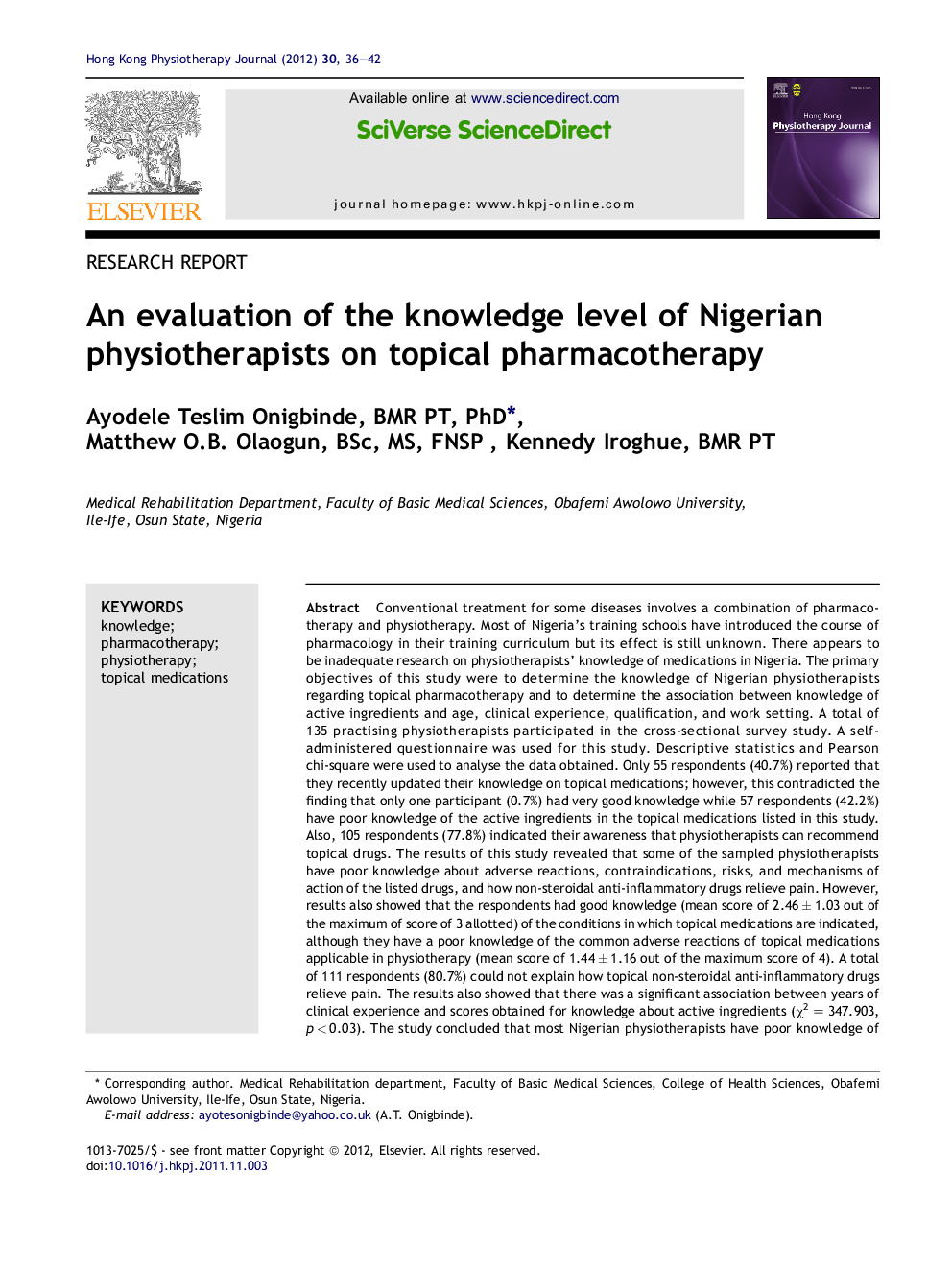| Article ID | Journal | Published Year | Pages | File Type |
|---|---|---|---|---|
| 2618521 | Hong Kong Physiotherapy Journal | 2012 | 7 Pages |
Abstract
Conventional treatment for some diseases involves a combination of pharmacotherapy and physiotherapy. Most of Nigeria's training schools have introduced the course of pharmacology in their training curriculum but its effect is still unknown. There appears to be inadequate research on physiotherapists' knowledge of medications in Nigeria. The primary objectives of this study were to determine the knowledge of Nigerian physiotherapists regarding topical pharmacotherapy and to determine the association between knowledge of active ingredients and age, clinical experience, qualification, and work setting. A total of 135 practising physiotherapists participated in the cross-sectional survey study. A self-administered questionnaire was used for this study. Descriptive statistics and Pearson chi-square were used to analyse the data obtained. Only 55 respondents (40.7%) reported that they recently updated their knowledge on topical medications; however, this contradicted the finding that only one participant (0.7%) had very good knowledge while 57 respondents (42.2%) have poor knowledge of the active ingredients in the topical medications listed in this study. Also, 105 respondents (77.8%) indicated their awareness that physiotherapists can recommend topical drugs. The results of this study revealed that some of the sampled physiotherapists have poor knowledge about adverse reactions, contraindications, risks, and mechanisms of action of the listed drugs, and how non-steroidal anti-inflammatory drugs relieve pain. However, results also showed that the respondents had good knowledge (mean score of 2.46 ± 1.03 out of the maximum of score of 3 allotted) of the conditions in which topical medications are indicated, although they have a poor knowledge of the common adverse reactions of topical medications applicable in physiotherapy (mean score of 1.44 ± 1.16 out of the maximum score of 4). A total of 111 respondents (80.7%) could not explain how topical non-steroidal anti-inflammatory drugs relieve pain. The results also showed that there was a significant association between years of clinical experience and scores obtained for knowledge about active ingredients (Ï2 = 347.903, p < 0.03). The study concluded that most Nigerian physiotherapists have poor knowledge of topical pharmacotherapy they commonly use in clinical practice. This study suggests the need to organise continuing professional development programmes/seminars on pharmacotherapy as applicable to physiotherapy practice to improve the knowledge base of physiotherapists.
Related Topics
Health Sciences
Nursing and Health Professions
Manual Therapy
Authors
Ayodele Teslim BMR PT, PhD, Matthew O.B. BSc, MS, FNSP, Kennedy BMR PT,
